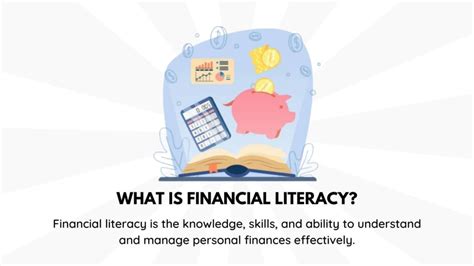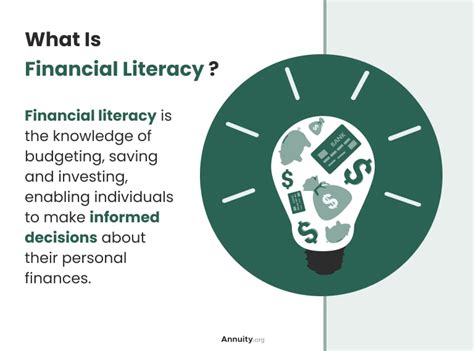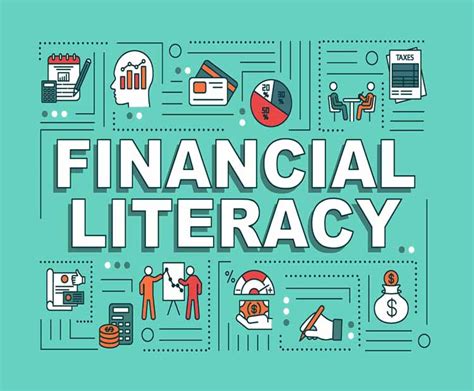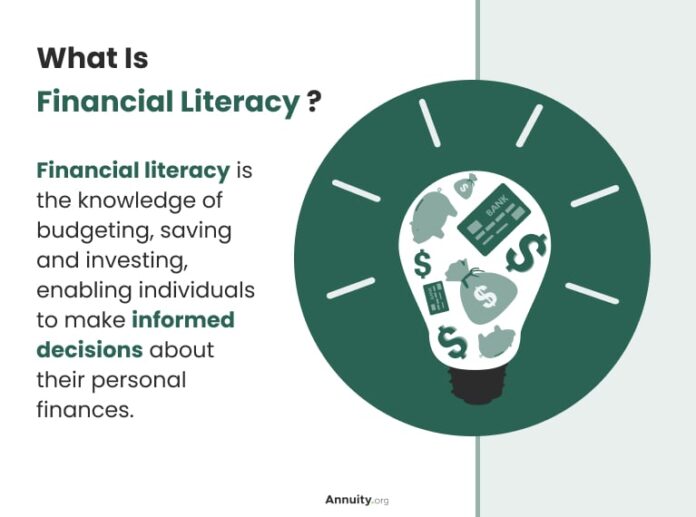In today’s fast-paced world, mastering financial literacy is a critical component of professional development. As individuals strive to grow in their careers, understanding the role of financial skills in making informed decisions becomes increasingly important. This article explores key strategies for professional development with a focus on financial literacy, offering insights into how these skills contribute to long-term career success. Through an engaging interview, we delve into the essential financial competencies required for growth, the challenges faced, and the impact of mentorship. By exploring these topics, readers will gain a comprehensive understanding of how to navigate their professional journeys with confidence and purpose.
terylblog.com will provide a detailed exploration of this topic.
1. Introduction
In today’s rapidly evolving job market, mastering financial literacy has become a crucial aspect of professional development. Financial skills are no longer just for those in accounting or finance; they are essential for everyone aiming to succeed in their careers. Understanding how to manage finances effectively can significantly impact professional growth, from making informed investment decisions to budgeting for career-enhancing opportunities.
This article delves into the intersection of financial literacy and professional development, offering insights into how financial skills contribute to career advancement. Through an insightful interview with experts, we explore the fundamental financial competencies necessary for professional success, uncover common challenges faced during the development process, and discuss effective learning methods. Additionally, the role of mentorship in fostering financial acumen and balancing professional growth with personal life will be examined. By addressing these key areas, we aim to provide a comprehensive guide for individuals looking to enhance their careers through improved financial literacy. This exploration will help readers understand the value of integrating financial knowledge into their professional development strategies and prepare them for a more informed and successful career trajectory.

2. Understanding Professional Development
Professional development encompasses a wide range of activities and learning experiences aimed at enhancing one’s skills, knowledge, and career prospects. It involves both formal and informal learning processes that help individuals improve their competencies and advance in their careers. Key aspects of professional development include acquiring new skills, staying updated with industry trends, and engaging in continuous learning.
Understanding professional development requires recognizing its multifaceted nature. It is not limited to job-specific training but also includes broader activities such as networking, attending workshops, and seeking mentorship. These efforts contribute to personal growth and can lead to greater career satisfaction and opportunities for advancement.
Incorporating financial literacy into professional development is increasingly important. Financial skills enable individuals to make informed decisions about investments, savings, and budgeting, which can directly impact their career trajectories. For example, effective financial management can support career development by providing the resources needed for further education or professional certifications.
Furthermore, professional development is an ongoing process. It requires a proactive approach to learning and adapting to changes within one’s industry. By integrating financial literacy into their professional development strategies, individuals can enhance their overall effectiveness and readiness to tackle future challenges, ultimately leading to more successful and fulfilling careers.

3. The Role of Financial Literacy in Professional Growth
Financial literacy plays a crucial role in professional growth by equipping individuals with the skills needed to make informed and strategic financial decisions. Understanding key financial concepts, such as budgeting, investing, and financial planning, directly impacts one’s ability to manage personal finances effectively and invest in career opportunities.
For professionals, financial literacy can enhance decision-making in various areas, including career investments like further education or certifications. It enables individuals to evaluate the costs and benefits of these investments and plan accordingly. Additionally, sound financial management helps professionals maintain financial stability, reducing stress and allowing them to focus more on career development.
Moreover, financial literacy is increasingly valued by employers. Professionals who demonstrate strong financial acumen are often seen as more competent and capable of handling financial responsibilities within their roles. This can lead to career advancement and opportunities for leadership positions.
In summary, integrating financial literacy into professional development strategies not only aids in personal financial management but also enhances career prospects. By understanding and applying financial principles, individuals can make strategic decisions that support their long-term professional growth and success.

4. Essential Skills for Financial Literacy
To effectively master financial literacy, several essential skills are crucial for professional and personal growth.
First, budgeting is a fundamental skill. Understanding how to create and manage a budget allows individuals to track income and expenses, set financial goals, and make informed spending decisions. This skill helps in maintaining financial stability and planning for future needs.
Second, investing knowledge is important. Familiarity with various investment options, such as stocks, bonds, and retirement accounts, enables individuals to grow their wealth and prepare for long-term financial goals. Understanding risk management and asset allocation is key to making strategic investment choices.
Third, financial planning is vital. This involves setting financial goals, creating plans to achieve them, and regularly reviewing and adjusting those plans as circumstances change. Effective financial planning includes retirement planning, tax strategies, and estate planning.
Additionally, understanding credit and debt management is crucial. Knowing how to manage credit scores, handle debt responsibly, and avoid excessive borrowing helps in maintaining financial health and securing better financial opportunities.
Overall, developing these financial skills empowers individuals to make sound decisions, manage their resources effectively, and achieve their professional and personal financial goals.
5. Challenges in Professional Development
To effectively master financial literacy, several essential skills are crucial for professional and personal growth.
First, budgeting is a fundamental skill. Understanding how to create and manage a budget allows individuals to track income and expenses, set financial goals, and make informed spending decisions. This skill helps in maintaining financial stability and planning for future needs.
Second, investing knowledge is important. Familiarity with various investment options, such as stocks, bonds, and retirement accounts, enables individuals to grow their wealth and prepare for long-term financial goals. Understanding risk management and asset allocation is key to making strategic investment choices.
Third, financial planning is vital. This involves setting financial goals, creating plans to achieve them, and regularly reviewing and adjusting those plans as circumstances change. Effective financial planning includes retirement planning, tax strategies, and estate planning.
Additionally, understanding credit and debt management is crucial. Knowing how to manage credit scores, handle debt responsibly, and avoid excessive borrowing helps in maintaining financial health and securing better financial opportunities.
Overall, developing these financial skills empowers individuals to make sound decisions, manage their resources effectively, and achieve their professional and personal financial goals.
6. Effective Learning Methods
Effective learning methods for financial literacy are essential to gaining and applying financial skills. One effective approach is engaging in structured courses or workshops, which offer comprehensive and systematic instruction on financial principles. Online platforms and educational institutions provide a range of options, from beginner to advanced levels, allowing individuals to learn at their own pace.
Another valuable method is practical application. Creating and managing personal budgets, investing in small-scale projects, and using financial planning tools provide hands-on experience and reinforce theoretical knowledge. Real-life practice helps in understanding how financial concepts apply to everyday decisions.
Additionally, reading books and articles from reputable financial experts can expand one’s knowledge and provide diverse perspectives. Financial blogs, journals, and news sources are also useful for staying updated on trends and best practices.
Participating in financial literacy seminars or joining discussion groups with peers and mentors allows for interactive learning and sharing of experiences. This collaborative approach enhances understanding through dialogue and feedback.
Finally, leveraging financial management apps and software can facilitate ongoing learning and application by providing practical tools for budgeting, investing, and tracking financial progress. These methods collectively support the development of robust financial literacy skills.
7. The Role of Mentorship
Mentorship plays a pivotal role in enhancing financial literacy and professional development. A mentor, with their experience and expertise, can provide personalized guidance and insights that are invaluable for navigating financial decisions and career growth. By sharing their own experiences and knowledge, mentors help mentees understand complex financial concepts and apply them effectively.
Mentorship offers the benefit of real-world advice and practical tips that go beyond theoretical learning. Mentors can help identify financial goals, develop strategies for achieving them, and provide feedback on financial planning and management. Their perspective on industry trends and best practices adds significant value to a mentee’s professional development.
Additionally, mentors can offer support in overcoming challenges and making informed decisions. They can introduce mentees to valuable resources, networks, and opportunities that might otherwise be inaccessible. The mentor-mentee relationship fosters accountability and encourages continuous learning, reinforcing the application of financial literacy skills.
Overall, mentorship not only accelerates the acquisition of financial knowledge but also enhances the professional growth of individuals by providing tailored advice, support, and a broader perspective on financial and career management.
8. Balancing Professional Development with Personal Life
Balancing professional development with personal life is crucial for overall well-being and long-term success. Achieving this balance requires thoughtful planning and prioritization. One effective strategy is to set clear, achievable goals for both career and personal life, ensuring that progress in one area does not come at the expense of the other.
Time management plays a key role in maintaining this balance. Creating a structured schedule that allocates dedicated time for professional development activities, personal interests, and family commitments helps manage competing demands. It’s important to regularly assess and adjust this schedule to accommodate changing priorities and avoid burnout.
Additionally, integrating financial literacy into personal life planning can enhance this balance. By managing finances effectively, individuals can reduce stress and create more opportunities for both personal and professional growth.
Self-care and setting boundaries are also essential. Prioritizing health and well-being ensures sustained productivity and satisfaction in both professional and personal realms. Ultimately, balancing these aspects leads to a more fulfilling and successful life.
9. Future Trends in Professional Development
The future of professional development is rapidly evolving, driven by technological advancements and changing workplace dynamics. One prominent trend is the increased use of digital learning platforms and online courses. These technologies offer flexible, accessible learning opportunities, allowing professionals to acquire new skills and knowledge at their own pace, regardless of location.
Another trend is the growing emphasis on personalized learning experiences. Advanced analytics and artificial intelligence are enabling customized training programs tailored to individual needs and career goals. This approach enhances the relevance and effectiveness of professional development initiatives.
Incorporating financial literacy into professional development is also gaining traction. As financial skills become increasingly critical for career success, more programs are integrating financial education into their curricula. This trend reflects the recognition of financial competence as a key driver of professional growth.
Additionally, there is a rising focus on soft skills development, such as emotional intelligence and leadership, alongside technical skills. These competencies are essential for navigating complex work environments and advancing into leadership roles.
Overall, the future of professional development will likely be characterized by greater flexibility, personalization, and integration of essential skills, preparing individuals for a dynamic and evolving job market.
Mastering financial literacy is integral to professional development, enhancing career growth and decision-making. By acquiring essential financial skills, embracing effective learning methods, and leveraging mentorship, individuals can achieve a balanced and successful career. Staying informed about future trends will further support ongoing professional and personal advancement in a rapidly changing world.
terylblog.com
